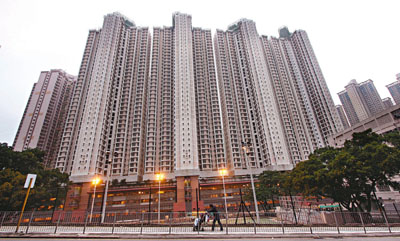Investigation finds illegal cash

Some hot money - or speculative short-term capital - has flown into the real estate sector, while the country has generally seen no large, organized hot money inflow, the State Administration of Foreign Exchange (SAFE) said Wednesday in a statement released on its website.
The currency regulator has discovered 190 illegal cross-border transactions involving $7.35 billion via a special investigation rolled out across 13 provinces and cities with relatively large amounts of foreign exchange transactions since February, according to the statement.
All told, 3.47 million transactions involving more than $440 billion have been checked out during the investigation, the SAFE said in the statement.
Illegal speculative money inflows are mainly through channels including trade, service trade, foreign direct investment, banks and individuals. Some speculative money flows into financing activities beyond the scope of services or into hot fields such as the real estate sector, the SAFE said.
"I don't think it's a big problem - and I think the danger is that we get so worried about hot money that it affects important policy decisions," Stephen Green, head of China research at Standard Chartered Bank in Shanghai, told the Global Times.
"No capital account anyway in the world is water-tight, China's included, so some money does make it in outside of the proper legal framework, and some makes it in legally in order to speculate in areas such as real estate," Green said.
It is not "hot money" but factors including limited land supply, high income growth among some groups of people, and massive bank credit growth that are driving the real estate market, he said.
The position for foreign exchange purchase, a key figure for measuring short-term capital inflow from overseas, reached 286.31 billion yuan ($41.91 billion) in April, compared with 270.15 billion yuan ($39.54 billion) in March, the People's Bank of China (PBC) said Monday. The figure was far less than the previous market estimation of nearly 400 billion yuan ($58.55 billion).
The yuan's de-pegging from the dollar will be postponed to the third quarter of this year as long as concerns over Europe have eased, analysts with Standard Chartered Bank said in a note Monday.
In a note released May 6 they estimated the de-pegging would take place in the week starting May 10.
 0
0 






